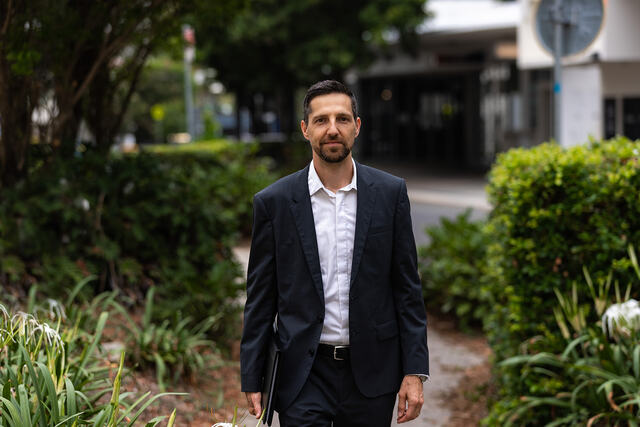A growing number of Queensland motorists are missing out on fair compensation and the chance to heal in Compulsory Third Party (CTP) claims, as many insurers encourage injured people to self-represent rather than seek legal advice.
Recent data from the Motor Accident Insurance Commission (MAIC) reveals that, on average, legally represented claimants receive around eight times more compensation than those who go it alone. They also receive 3.17 times more in treatment and rehabilitation funding – an essential part of the recovery journey.
The number of injured people self-lodging claims without legal advice has also been steadily increasing, according to the MAIC data.
Greg Spinda, Partner at law firm Travis Schultz & Partners, said these figures call into question whether injured people are being given a fair go in the claim process when not legally represented.
“CTP insurer websites are urging injured road users to lodge claims directly with their insurer, promising expert claims officers to assist and support the injured person, no need for lawyers to be involved because they can charge up to 50 per cent of the compensation, and if claimed directly the person will receive 100 per cent of the compensation.
“However, what self-represented claimants aren’t being told is that while they may receive 100 per cent of their claim, the payout is, on average, substantial less than what they would get with legal representation, even after legal costs are paid.
“And now we know it’s not just about compensation – self-represented claimants are also missing out on the chance to heal. Without access to proper treatment and rehab, their recovery is delayed, and long-term outcomes are at risk.
“Realistically, how can a CTP insurer offer fair and unbiased advice when they represent the at-fault driver, not the injured person, and hold the purse strings?
“Given these compensation and treatment funding outcomes, it’s clear that injured Queenslanders are fighting with both hands behind their backs against large insurers promoting self-representation. While claims concierge services and promises of keeping 100 per cent of compensation may sound great, the reality falls far short of the marketing spin.”
Mr Spinda cautions injured people to be wary of claims such as “No need for lawyers, they will charge you up to 50 per cent of your compensation.”
“Legal fees in Queensland are capped by the 50/50 rule but that does not mean a lawyer will take half a person’s payout. In fact, many law firms, like Travis Schultz & Partners, set a much lower cap.
“Even if we were to play devil’s advocate and assume the 50 percent figure was accurate, claimants would still be significantly better off with legal representation, given they receive on average eight times more compensation than those who go it alone,” Mr Spinda said.
Mr Spinda adds that despite poorer compensation outcomes, there is an alarming trend of increasing self-represented claimants.
“Self-represented claimants are up against insurance giants armed with claims teams, rehabilitation experts, in-house lawyers, accountants, actuaries and countless others all working to minimise costs and maximise efficiency. For these claimant’s it’s not even a David and Goliath battle; it’s an entirely one-sided fight. They are unknowingly at a disadvantage; all while being reassured by Goliath they’ll be looked after.”









